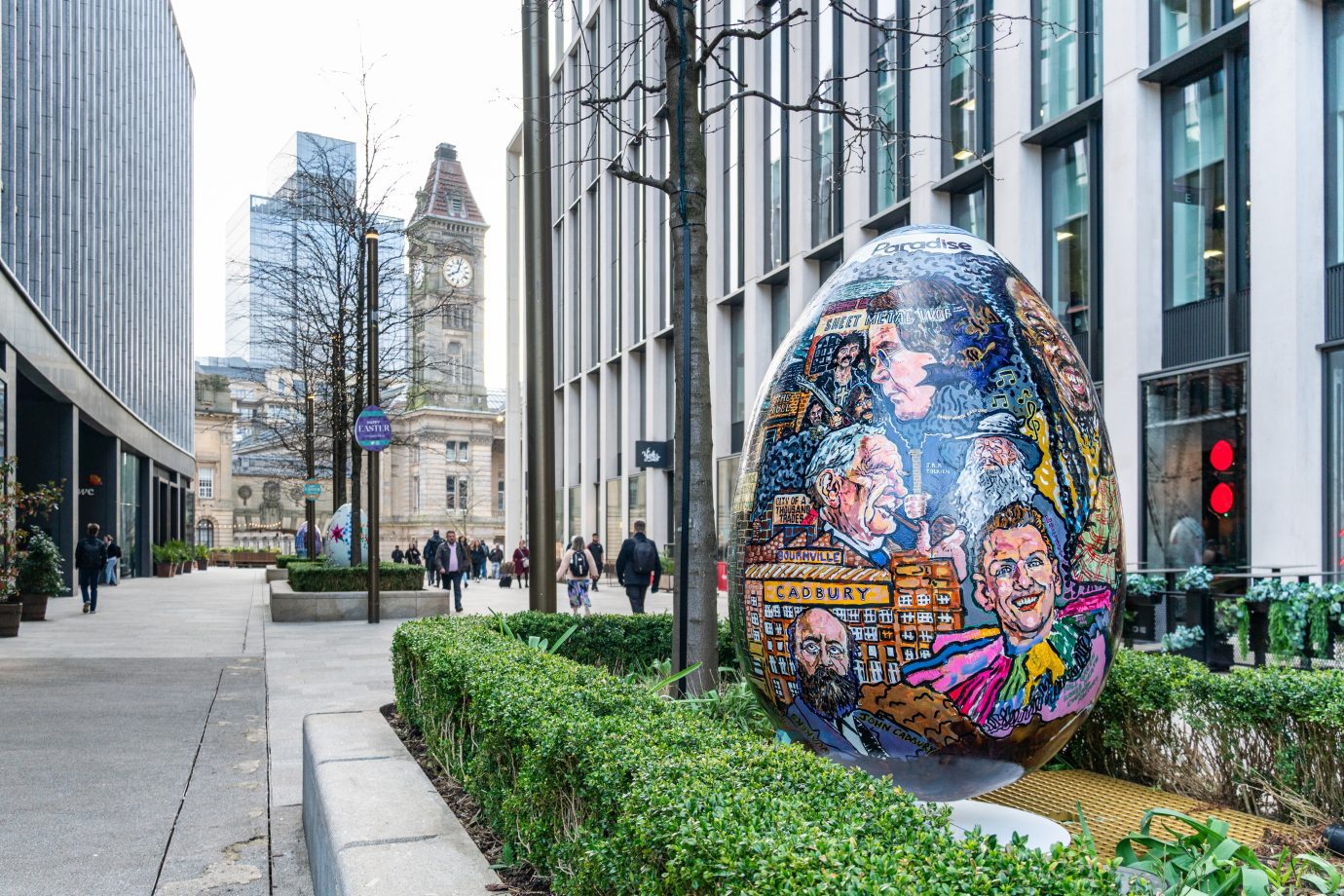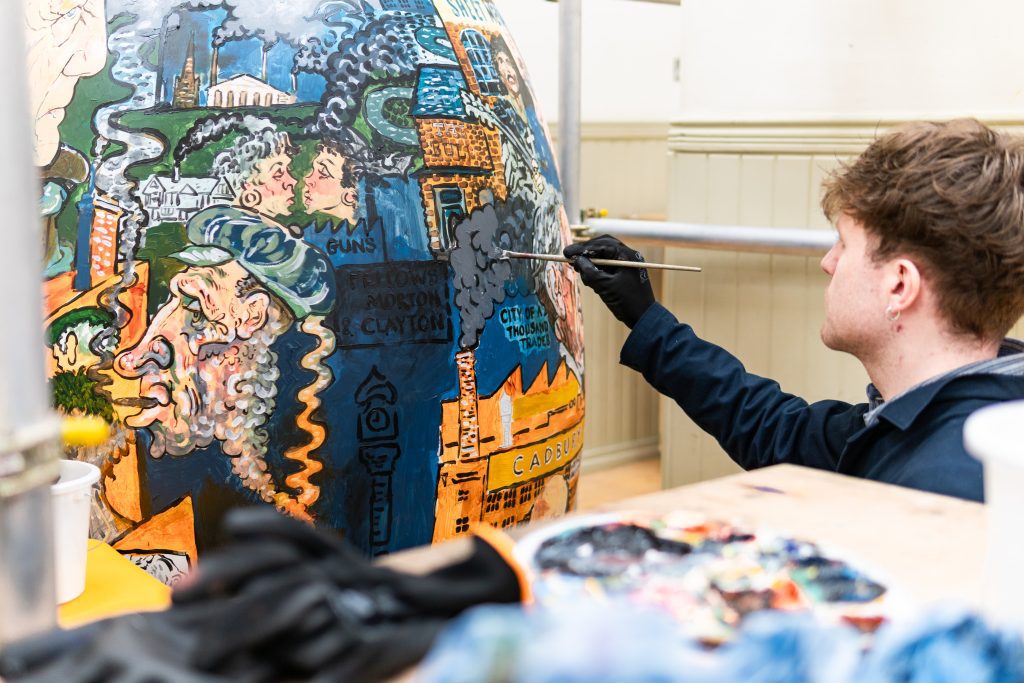Wow! Eggs-stream art comes to Paradise

Have you spotted the giant Easter eggs adorning Paradise?
The three bright and ambitious pieces of artwork have been painted for the estate by three different students all studying Fine Art at Birmingham School of Art, part of Birmingham City University, on nearby Margaret Street.
The three giant eggs are inspired by the city’s natural beauty, the built environment and historic figures. Places like Bournville, the Library of Birmingham and Victoria Square and the Council House are all included in the montage of images on each egg.
The eggs also pay tribute to key individuals in the city’s history like authors JRR Tolkien and Benjamin Zephaniah, as well as industrialists like Matthew Boulton, James Watt and William Murdoch. Peaky Blinders and its creator Steven Knight also features.
The eggs have been designed and painted by student artists James Fellows, Bethany James and Shalet Shaji.
Painted over the past few weeks and now unveiled and installed on Centenary Way in the heart of the city and Paradise estate, the eggs make a special feature for everyone to see and enjoy over the Easter period.
The artist’s handiwork has helped bring the city to life with some stunning artistry, making the eggs not just colourful and accessible, but symbolic of the hard working yet beautiful city they represent.

Once the eggs have completed their stint at Paradise for Easter they will be auctioned to raise money for local good causes and will hopefully be installed in new locations where they will continue to bring a smile to many more people.
Paradise is looking for local charities interested in taking an egg and auctioning it off to contact Becki Leonard at Paradise: [email protected]
Artist James Fellows said:
“The opportunity to work on these eggs at Paradise has been a real privilege. Telling the story of Birmingham in such a creative way is a joy. My egg reflects on the relationship between labour, identity, and place and often references the enduring impact of the industrial revolution on contemporary life. The work also celebrates Birmingham as a diverse place of convergence — a crossroads where industry, culture, art, sport, and communities meet.”
Caroline Rudge from Paradise Birmingham developer and asset manager MEPC, said:
“For the second year running we’re very proud to play host to some giant Easter eggs which really capture people’s imaginations as they walk past and through Paradise.
They’re a great addition to the estate and reflect back on us the important, historic part of the city Paradise sits in with its long history as a centre for culture and learning, commerce and leisure.
“I hope lots of people will take the trouble to find out more about the eggs and most of all, visit them in person over the coming weeks before they are eventually auctioned off for good causes in the city.”
James Fellows
James Fellows is a painter and final-year Fine Art student at Birmingham School of Art. His multidisciplinary practice reflects both current and historic themes. Through layered, character-led imagery, he captures Birmingham’s energy, resilience, and complex social history. He is currently developing plans for postgraduate study, with a focus on public art and contributing to the evolving visual language of contemporary Britain.
Bethany James
Bethany’s practice is primarily around painting, drawing and print work, with the focus being inspired by capturing both the essence and spontaneity of nature. It draws inspiration from nature’s range of shapes and forms, is always bright and vibrant. She’s interested in the relationship between art and the viewer being interactive and engaging. Inspired by the blossoming of nature during spring, Bethany’s egg shows how this time of year coincides perfectly with how Birmingham has evolved with an energy and vibrancy reflective of the season that parallels the constant growth and change of the city.
Shalet Shaji
Shalet is a current final year Fine Art student at Birmingham School of Art. Her work explores the interactions around her culture as a Keralan, that she knows little of, and growing up in contemporary Britain and trying to find the balance between Keralan and British culture. Shalet Shaji’s works are very colourful and vibrant, and with an abstract touch to them.